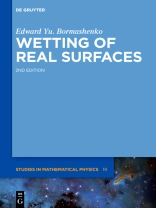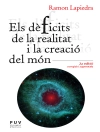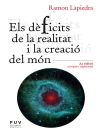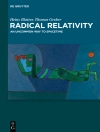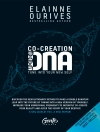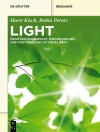The revealing of the phenomenon of superhydrophobicity (the ‘lotus-effect’) has stimulated an interest in wetting of real (rough and chemically heterogeneous) surfaces. In spite of the fact that wetting has been exposed to intensive research for more than 200 years, there still is a broad field open for theoretical and experimental research, including recently revealed superhydrophobic, superoleophobic and superhydrophilic surfaces, so-called liquid marbles, wetting transitions, etc. This book integrates all these aspects within a general framework of wetting of real surfaces, where physical and chemical heterogeneity is essential.
Wetting of rough/heterogeneous surfaces is discussed through the use of the variational approach developed recently by the author. It allows natural and elegant grounding of main equations describing wetting of solid surfaces, i.e. Young, Wenzel and Cassie-Baxter equations. The problems of superhydrophobicity, wetting transitions and contact angle hysteresis are discussed in much detail, in view of novel models and new experimental data. The second edition surveys the last achievements in the field of wetting of real surfaces, including new chapters devoted to the wetting of lubricated and gradient surfaces and reactive wetting, which have seen the rapid progress in the last decade. Additional reading, surveying the progress across the entire field of wetting of real surfaces, is suggested to the reader.
Contents
What is surface tension?
Wetting of ideal surfaces
Contact angle hysteresis
Dynamics of wetting
Wetting of rough and chemically heterogeneous surfaces: the Wenzel and Cassie Models
Superhydrophobicity, superhydrophilicity, and the rose petal effect
Wetting transitions on rough surfaces
Electrowetting and wetting in the presence of external fields
Nonstick droplets
Wetting of lubricated surfaces
Об авторе
E. Y. Bormashenko, Ariel University Center of Samaria, Israel.
